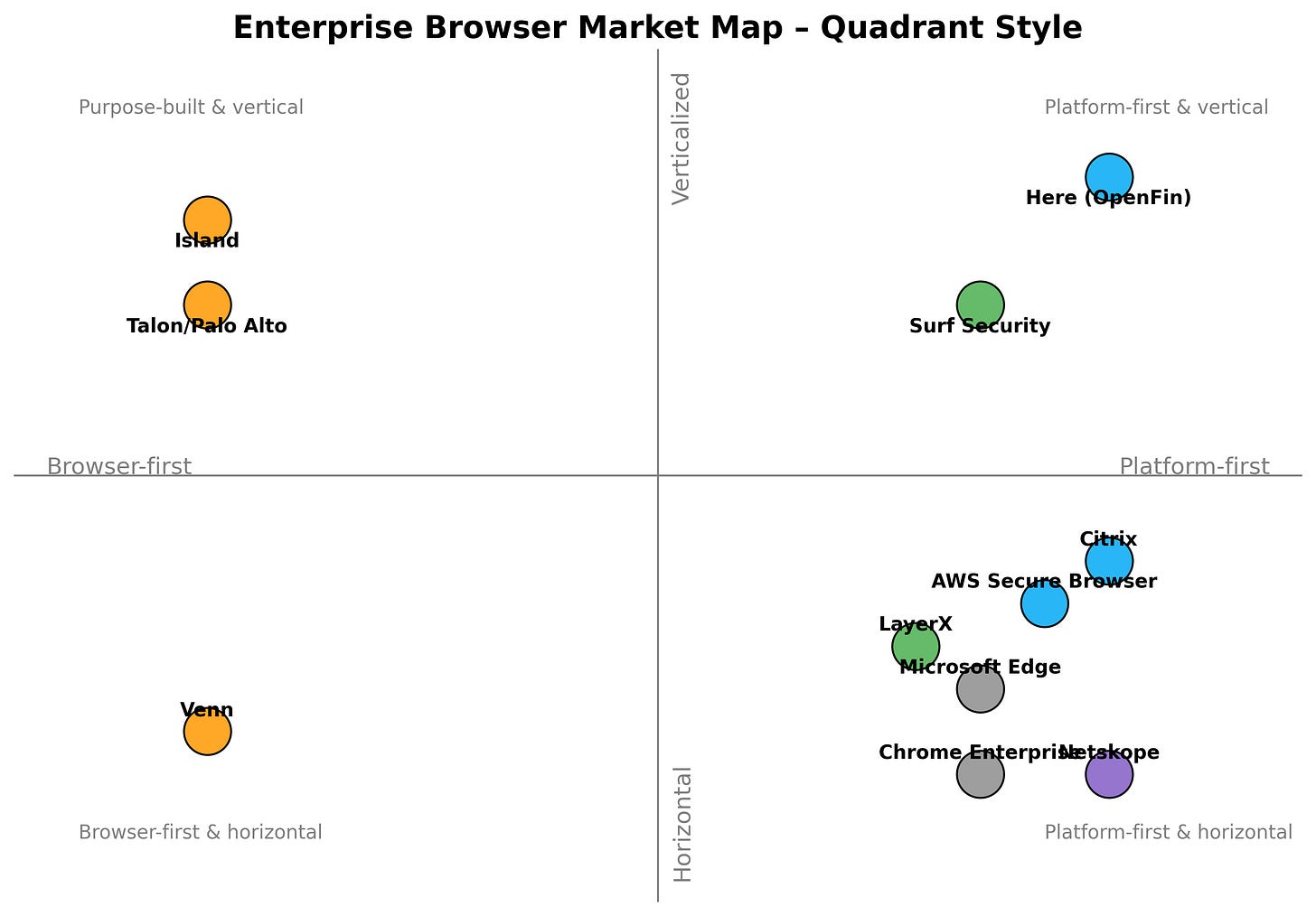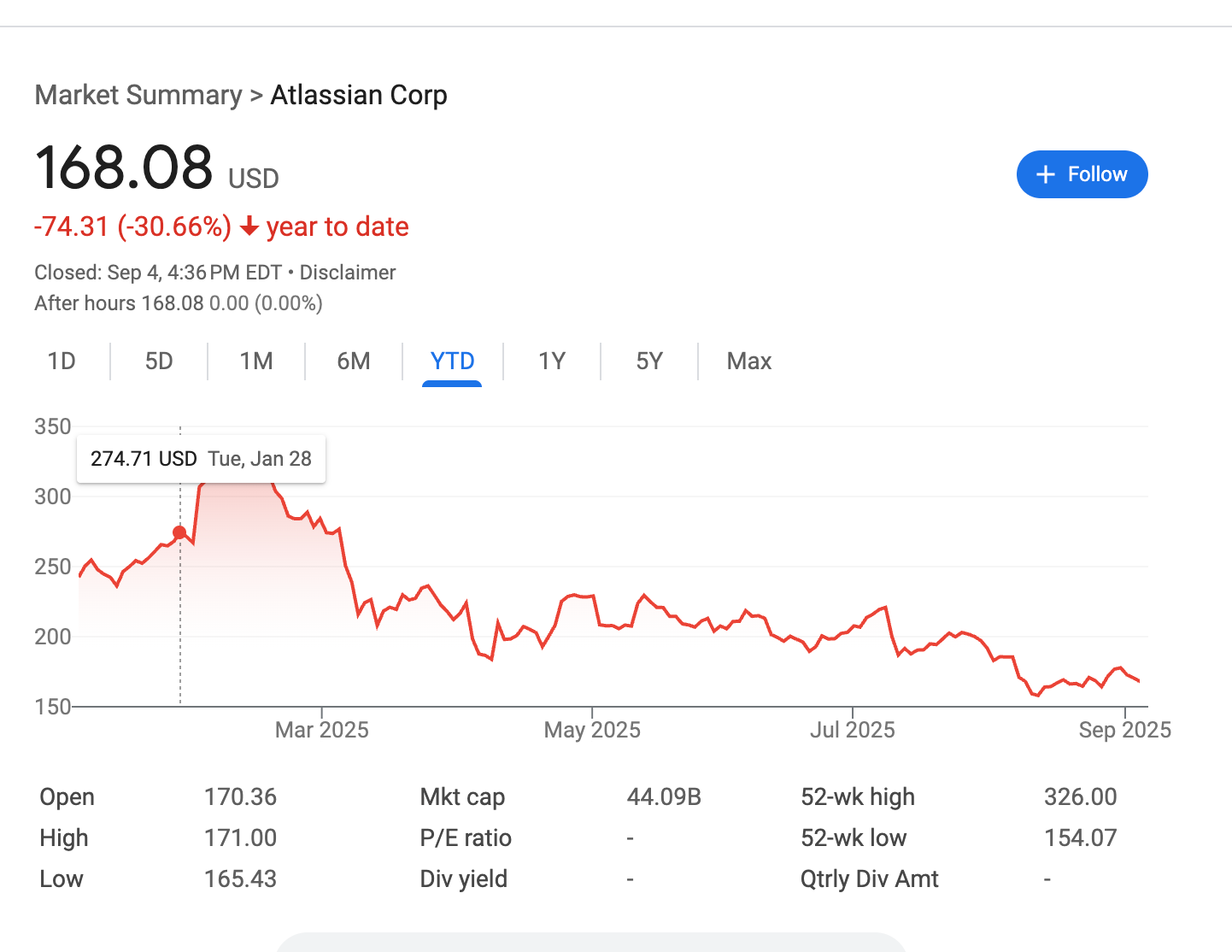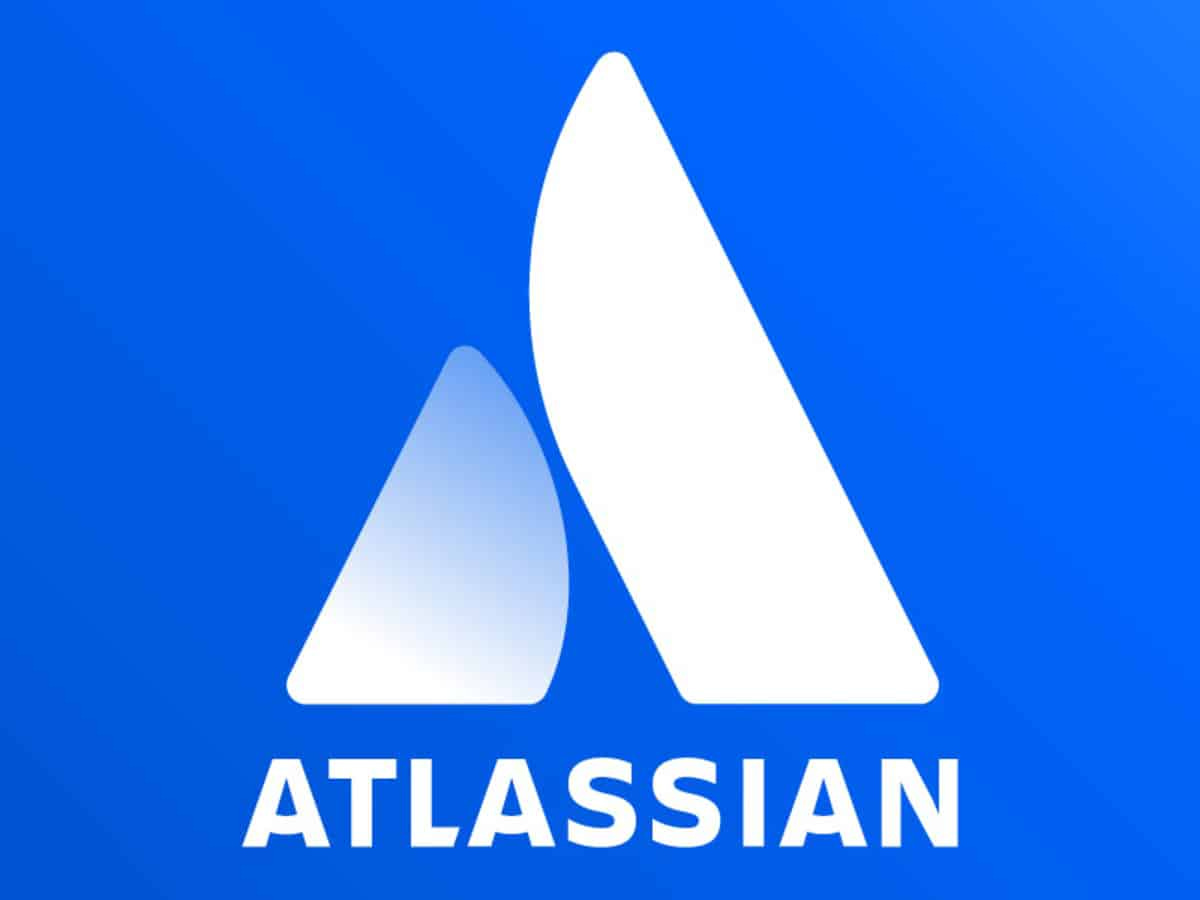Why is Atlassian Buying a Browser Company?
Enterprise Browser Market Will Become a Hot Topic
Each month, this newsletter is read by over 45K+ operators, investors, and tech / product leaders and executives. For more independent analysis, market commentary, and access, consider upgrading to support the publication.
Atlassian just announced they are acquiring The Browser Company (with a “The”) for $610 million. That’s the company behind the Arc browser, which was what the cool kids (with ADHD) used in 2023 to wrangle their 100+ open tabs.
Recently, they branched into the so-called “AI native browser” market with Dia, a ChromeOS fork bundled with a chatbot that launched in preview two months ago. Arc itself had a few million users but slowing growth, which explains why the founders decided to sell.
The real question is why Atlassian - a crusty enterprise web-app company best known for JIRA, which everyone loves to hate - is buying a browser company at all.
How does a browser fit inside the portfolio of a workplace collaboration vendor with 50K+ enterprise customers? On the surface, browsers feel out of place for a company built on web apps.
Here’s why: Atlassian needs to own the browser channel if it wants to sell its own AI agents (Rovo). If Atlassian remains “just a web app,” then browser companies with their own agents will control how Atlassian’s data gets consumed. That would blow up its plans to monetize AI agents, among other things.
In the next wave of enterprise, you essentially need to own the chat interface, and not be reduced to being a MCP plugin to other chatbot. That’s why from a SaaS company’s perspective, chatbots bolted into browsers are like pesky gnats that steal lifeblood (data). That might mean having to roll your own browser distribution.
But let’s back off and talk about what an “enterprise browser” even means. Think of it like a browser that’s totally controlled by corporate with deep surveillance. Often, these browsers can selectively turn off copy/paste, block sites, track mouse movement, etc.
The buyers are companies that want stricter control over how employees or contractors use browsers, beyond what firewalls can do. Since most work apps live in the browser, plugging security controls directly into the browser itself has become attractive.
This market has existed for a while, with some big startups such as Island, and Here (verticalized version). Historically, this space was really boring, and the only customers that cared were those in highly regulated industries (e.g. finance, gov) or those that wanted to save money by allowing BYOD (bring your own device) without security issues.
But this space is getting hot again, since every frontier lab is trying to get into browsers (OpenAI, Perplexity Comet, etc) after realizing that they need to bolt on their AI agents in browsers. Otherwise, Google will do it, and OpenAI might get hosed too by lacking distribution. Which is funny, because they are all ChromeOS forks.
But back to Atlassian. By buying a ChromeOS fork of their own, Atlassian can now get into the enterprise browser game, potentially with Rovo bolted in.
If this browser business takes off, Atlassian can at least use it to sell Rovo at a premium, and not worry as much about Google or OpenAI agents trying to scrape JIRAs on their behalf. That’s important, because the data inside JIRAs is the lifeblood.
The browsers alone can be a huge market, especially if it turns out that enterprise and consumer browser markets are completely fragmented. That said, Dia (what they acquired) has no real customers, so Atlassian has to validate whether they can enter this market on their own. Arc was more of a consumer product, and it turned out already that no one wanted to pay for Arc. So the only play left is enterprise.
Unfortunately for Atlassian, both Microsoft Edge and Google have their own enterprise teams. That said, I am not sure how serious Satya and Sundar are about choking this AI browser distribution.
The meta here is that the recent M&A activity in tech is a reflection of the tough times in SaaS space. They need to do something. Anything. New ideas are welcome. Atlassian is down almost 30% the past year.
My prediction: the largest SaaS companies (including Salesforce) will copy this and sell their own ChromeOS fork browsers. The space will get crowded, with no real winners, but will become yet another table stakes thing that SaaS companies need to do. If this market gets big enough, most companies will still end up using either Edge or Chrome for enterprise.
About Me
I write the "Enterprise AI Trends" newsletter (read by over 45K readers worldwide per month), and help companies build the right AI solutions (AI Native Firm).
Previously, I was a Generative AI architect at AWS, an early PM at Alexa, and the Head of Volatility Index Trading at Morgan Stanley. I studied CS and Math at Stanford (BS, MS).




